#Simon Cowell Interview
Explore tagged Tumblr posts
Text
Simon Cowell, the mastermind behind the enduring summer sensation America's Got Talent, has been a staple in the talent show landscape for years. With 19 seasons under its belt, and Cowell himself judging for eight of them, AGT has provided a platform for countless aspiring performers hoping to achieve their dreams. While Cowell has honed his reputation as a discerning and sometimes acerbic judge on shows like American Idol, The X Factor, and Britain's Got Talent, it seems AGT brings out a different side of him.
On AGT, audiences witness a more nuanced Cowell, one who balances his trademark candor with genuine empathy for the diverse acts that grace the stage. Over the years, Cowell has expressed his fondness for the show's inherent optimism, finding inspiration in the contestants' resilience and determination to overcome challenges.
America's Got Talent airs Tuesday and Wednesday nights at 8/7c on NBC and streams the next day on Peacock.
#Simon Cowell#America's Got Talent#AGT#Talent Show#Reality TV#NBC#Peacock#Simon Cowell Interview#AGT Judges#Inspirational Stories#Overcoming Challenges#Talent Show Auditions#Entertainment#TV Personality#Music Industry#Pop Culture#Peacock TV#TV#TV News#television#Entertainment news#Celebrities#Celebrity#celebrity news#celebrity interviews#Television News
3 notes
·
View notes
Text
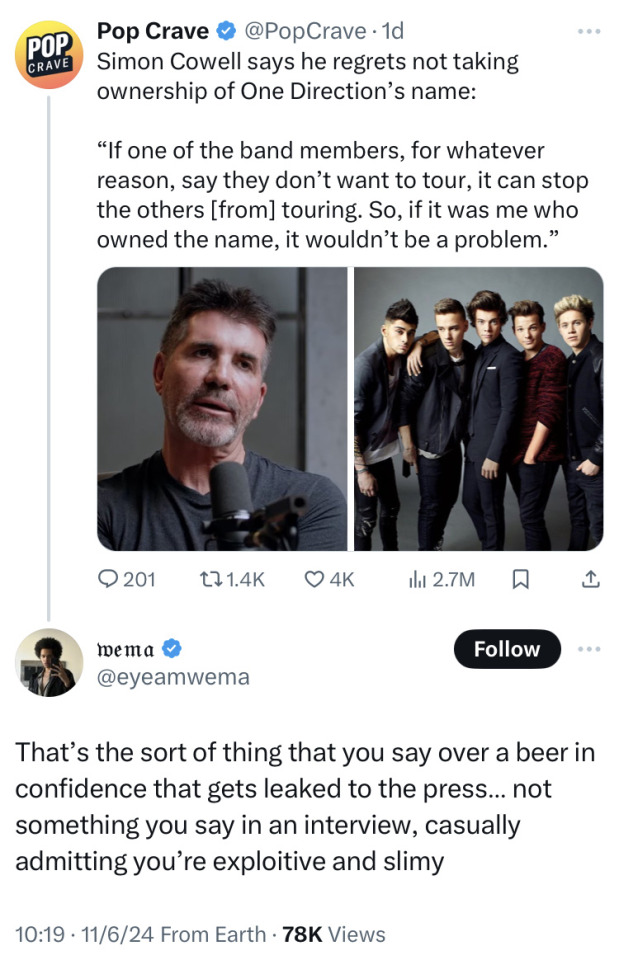
THIS reply!
#11 June 2024#everyone knows Simon is scum except most of the people or bots who commented under the YouTube of this Steven Bartlett interview#Simon cowell#popcrave#One Direction#scum of the earth#mine
389 notes
·
View notes
Text
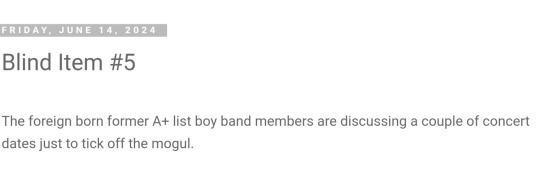
This is probably not true but it is funny
128 notes
·
View notes
Note
hello :) could you maybe explain a little bit how dan wootton blackmailed louis?
ugh sorry for taking a while to get to this. The problem is I feel like the only two ways to answer this are by spending a week and a half of full time labor sifting through old posts and evidence to get every detail right and lay out an airtight case, or to halfass something very serious, and so I felt a little stuck. So since I can't seem to find a good halfway point, apologies but here is the half assed version, if you want to get into it more I invite you to do your own deep dive or talk to other people, but here's how I remember things. Louis has almost never on video explicitly said things about Larry not being real and/or anything negative about fans and their theories (mostly the opposite), up until the last couple years when he obviously decided to make a major change he didn't talk about Freddie much at all let alone saying he was his kid, honestly not that much about Eleanor even; except for in two major interviews with Dan Wootton, each of which lined up with a serious traumatic Tomlinson family event that they managed to keep out of the tabloids until the very end (Jay's illness and Fizzy's struggles with substance abuse). After the fact of those events a lot of small things that didn't make sense at the time came together to look very much like Louis traded those interviews (and those answers) for having his family's private matters kept private. Story trading of this kind is a publicly known real thing that happens, and there were various clues that suggested he was being leaned on about those stories to lend legitimacy to the idea that it was something that happened in these cases. Given what we know about Dan Wootton and how he operates even before the recent flood of information and even more now, I think it's more than likely that he has been holding the threat of outing Louis (as he has done to many other public figures) over his head for over a decade, and has used his family's tragic struggles to get Louis to dance like a fucking puppet for him and I will REJOICE at his downfall when it comes whether it is now or 20 years from now... because someday it will, he has made too many enemies to stay above it forever
#I did start to try to deep dive before I realized it was too much#but I was reminded that when Louis was doing txf as a judge while fizzy was struggling#many people thought he had been pressured somehow into it; later when we knew what had been going on people were like#oh maybe he just wanted to be close to home to deal with fizzy stuff or somethng#but also: keeping fizzy stuff quiet would potentially be the info we didn't have at that time that could answer that q too of what they use#given the DW🤝simon jones🤝simon cowell cursed connections#(for the newbies: simon jones aka DWs bestie is Louis' publicist for no apparent reason even now long after he has gotten free of the rest#of the modest/syco/simon cowell shitshow)#anyway another example of story trading in our fandom is zayn's baby sister's teen pregnancy#which was known to the fandom early on but kept super quiet by respectful fans- during this time Z did some unprecedented actual interviews#for no obvious reason#and then iirc pretty much the day she turned 17 a very lowkey article reported on her marrying her bf and mentioning a pregnancy#but as if it was recent not like 7 months along#and even when she gave birth soon after it was all kind of... glossed over and around and not reported until a little later#blah blah blah#I felt like it was weird to talk about this for some reason but when I thought about it#I don't know if it matters. Like maybe talking about him not being a dad and being gay or whatever at all is bad#but assuming we're doing that anyway. why not talk about the struggles around that#and the creeps holding it over his head#dan wootton
293 notes
·
View notes
Text
youtube
For new fans this video help me a lot when I was new in the fandom. It's 4 years old but shares a few of the awful things the boys have to deal while they were in the band. One phrase Jasmine said is that One Direction was not a band they were a brand, yes they love each other but the way management sell them was as brand and a very manufactered and control one, contrary of all the lies Simon said recently.
#Youtube#is a long video like 46 min#but if you are new to the fandom is very informative#i will try to look for more content regardless of the explotation and mistreatment of the boys so we can remember#that interview make me mad him saying he said to the boys to be themselves#when that was the first thing he didn't allow them to do they couldn't be themselves freely#simon cowell#modest management#one direction#the dark side of one direction#one direction history#jasmine zade#s
13 notes
·
View notes
Note
thought u should know that ryan guzman interviewed britney spears and simon cowell
I saw that. I wonder why he was the one to interview them…
Weird….
2 notes
·
View notes
Text
youtube
#interview#it's not v notable but for completists!!#and they look good#I can't believe that undercover on simon cowell was the first one they ever did I remember it so vividly
6 notes
·
View notes
Text
I just really want to higjlight these previous tags 🤣 from @daggerandrose @swallows-are-for-hope and @fefeyuen
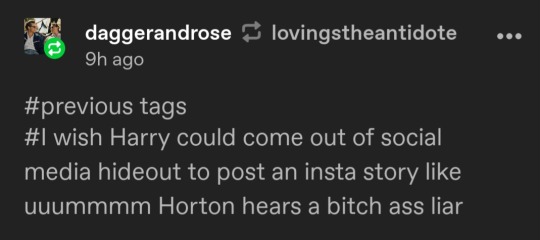
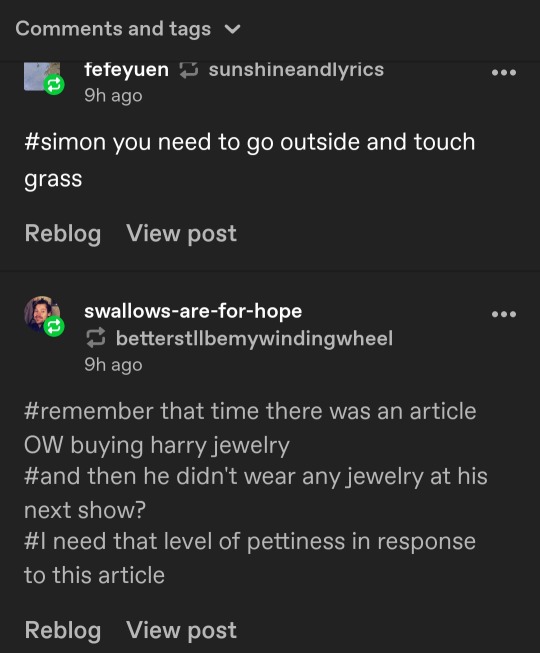
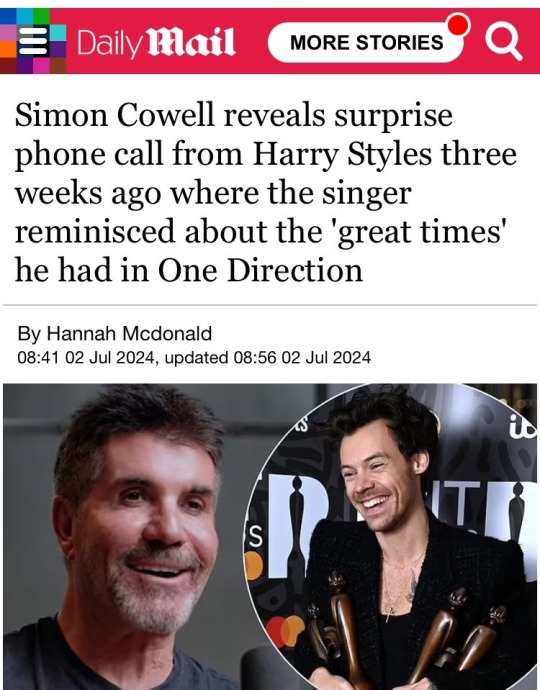
Things that didn’t happen.
Claiming Harry listened to his podcast and rang him to say how happy he was in 1d.
#previous tags sent me#I need Harry to show up in an interview with a casual anecdote about how he lost his phone a month ago or went on a phone cleanse#but this is my favorite tag of all time#Horton hears a bitch ass liar#i love this fandom#fuck simon cowell#simon cowell#harry styles#industry bullshit
182 notes
·
View notes
Text
"Simon Cowell tried to pressure us into making a deal at 16."
"Simon [Cowell] brought us into his trailer to get us to sign to Larry [Rudolph], and it was just the weirdest interaction ever. He was creepy and weird. They refused to have our parents in there."
- X Factor US contestants Emblem3 interviewed by Diamond White & Carly Rose.
[full episode here]
61 notes
·
View notes
Text
The Music Industry is FUCKED UP: Simon Cowell
Simon Cowell is a very powerful man who has done a good job of cleaning up his muddy footprints behind him. This post is intended to highlight not only his own pedophilic allegations and habits, but the people he surrounds himself with and publicly supports who are much the same if not worse. Simon Cowell is a man among like-minded company, for all the wrong reasons.
Table of contents:
The "Buffet" - told by Gavin Bain
Max Clifford
David Walliams
Jonathan King
The Buffet - told by Gavin Bain
Back in December 2024, Gavin Bain (former half of the rap/rock duo Silibil 'n Brains) went on The John Cooper Show to talk in-depth about his story "getting one over" on Sony. The original 2 videos (x) (x) that went around were just clips, with the full interview being locked behind a $9.99 Youtube Membership paywall. So, I took one for the team, and paid for 1 month of a membership to watch the whole thing.
Originally, I was going to transcribe the entire interview, but I quickly realized that is not only VERY hard, but very useless. The bits about Simon Cowell were brief and at the very end, the rest of the interview was about Gavin's personal story. I did, however, take notes on everything, so expect a post about Silibil 'n Brains soon, I guess.
Gavin explained how he, when he was still in Silibil 'n Brains, was invited to an industry afterparty that took place in a strip club. He mentioned earlier in the interview how all of these industry parties seemed to take place in strip clubs, for some reason. He ran into this guy who worked for Island Records, a record company Gavin had considered signing to but didn't, and the guy looked shocked to see Gavin there.
Apparently the afterparty was split into 2 sides of the venue, and Gavin, following people he recognized, had accidentally entered the wrong side. He had entered "the buffet." The Island Records guy asked Gavin "Who are you here with?" And Gavin said he was here with his duo-mate, to which Island Records guy said "Here-here? You're- you're gonna go to the buffet?" Gavin, taking that question literally, answered with "Why would I want to eat right now?"
That's when Gavin sees this boy he recognizes from around, a boy he knows is underage because he wasn't allowed to drink (this happened in the UK so the drinking age and age of adulthood are the same). The boy is in a lineup of other teenage girls and boys in very revealing clothing, none of the could have been older than 14-15 according to Gavin. Separate from the teenage lineup is a group of very influential music executives and industry people.
He later runs into the Island Records guy again, who tells him "You're not supposed to be here, you weren't invited. You shouldn't be here."
Later on, after this party, Gavin discovered that this was "Simon and Max's 'thing.'" These underage sex parties were a routine event hosted and organized by Simon Cowell and Max Clifford at "undisclosed strip joints." They'd invite teenagers who wanted to get into the music/entertainment industry, and they'd make them have sex with older execs for career opportunities that often never came.
Years later, Gavin came across the boy he'd recognized, who'd been underage at the time of attending the buffet. The boy, who Gavin didn't name, told him his story. He had been coerced by a Syco employee- a woman in her late 40s at the time- into having sex with her in exchange for career benefits. What ended up happening was this woman kept having sex with this underage boy, and the boy was coerced into signing away all of his image rights to Syco, trapping himself in a cycle of shitty TV appearances and roles he didn't want. He was legally unable to escape Syco at that point.
Direct quote from Gavin- "God knows where all those kids have come from. They're already tied up in pre-development deals, those deals don't just come to anyone." He explained how the boy felt like he needed to keep his sexual relationship with the older Syco employee a secret because he was underage, and he thought he would get in trouble for it. "You're never gonna cause a problem, because you think you've done something wrong."
Gavin and John Cooper also discussed another related incident, but since it isn't Simon Cowell related, I'm saving that for another post.
Max Clifford - Simon Cowell's former manager
Max Clifford was Simon Cowell's manager for over a decade, until around 2012 when he was arrested as a part of Project Yewtree on suspicion of sexual assault, and later found guilty and imprisoned for 8 accounts of such crimes in 2014. He would pass away in prison in 2017. (x) He was, as discussed above, involved in hosting Simon's buffet parties.
The fact that such a deplorable repeat offender was not only one of Simon's closest friends, but his manager of over a decade prior to his conviction, really highlights the web of pedophiles that Simon surrounds himself with. Pedophiles, I've learned, are pack animals. They're always in groups, you rarely find one working alone in the music industry. When one gets caught, they get ousted by the others and people act like their close friends and coworkers aren't likely doing the same thing.
There's a reason people say the music industry is one big sex trafficking ring- it's rife with people like Simon and Max everywhere you turn. And they all protect each other.
David Walliams - BGT & Harry Styles
David Walliams was a judge on Britain’s Got Talent alongside Simon Cowell from 2012-2022. David has faced a slew of controversies, most relevant a comment he made about Harry in 2011, when Harry was only 17 years old.
The comment was “I’d like to suck his cock” and it was broadcasted on Chris Moyles' Quiz Night. David was 40 at the time. The comment being made in 2011 and David being hired for BGT in 2012 means that Cowell chose to hire this man after this controversy, highlighting a concerning lack of care. But what else is new? (x)
Among David’s other controversies was an incident in 2006 where he exposed the genitals of multiple teenagers and simulated sexual acts with them for a comedy sketch. He repeated this sketch for years, with hefty criticism, and yet no official charges were ever pressed. (x)
Jonathan King - Simon paid his bail
Jonathan King is a record producer, singer-songwriter, music entrepreneur, and TV presenter who was convicted of four counts of sexual assault against teenage boys in 2001. His bail was set for £150,000, £50,000 of which was paid for by Simon Cowell. Although Jonathan was only convicted of 4 counts, 27 different men accused him of sexually assaulting them.
After Jonathan got out of prison, he was later arrested again as a part of Operation Ravine and charged in 2017 with 18 counts of sexual offenses, again against teenage boys. He was eventually acquitted of these charges, as a result of police errors and difficulties with a fair trial being carried out. (x) (x)
This guy has been accused of sexual assault by, like, 45 fucking people. Even if he was only convicted of 4, I highly suspect more of them were true and just didn't have enough evidence in court- and we know 18 were thrown out because the cops fucked up the investigation.
Conclusion
Simon Cowell needs to get curb stomped BADLY. He surrounds himself with pedophiles and rapists, and he himself runs pedophilic sex parties on the regular. Nobody cares, though. You won't see this in the news- they're too busy with the Diddy case, exposing more than one pedophile at a time is bad for the industry.
#the music industry is fucked up#simon cowell#max clifford#david walliams#jonathan king#syco#sony#gavin bain#music industry
63 notes
·
View notes
Text
America’s Got Talent is currently in the midst of its landmark 20th season of discovering performers both strange and amazing (and sometimes both). And if you’re amazed that the show has lasted 20 years, you’re not the only one. Simon Cowell is probably more surprised than anybody. After all, he created the show, and when we’ve spoken to him over the course of the show’s run, he said he considers the show lucky to have gotten on the air in the first place!
America’s Got Talent airs Tuesdays at 8/7c on NBC.
#America's Got Talent#AGT#Simon Cowell#Reality TV#Competition Show#Talent Show#NBC#Peacock#Peacock TV#TV#TV News#television#Entertainment#Entertainment news#Celebrities#Celebrity#celebrity news#celebrity interviews#Television News
1 note
·
View note
Text
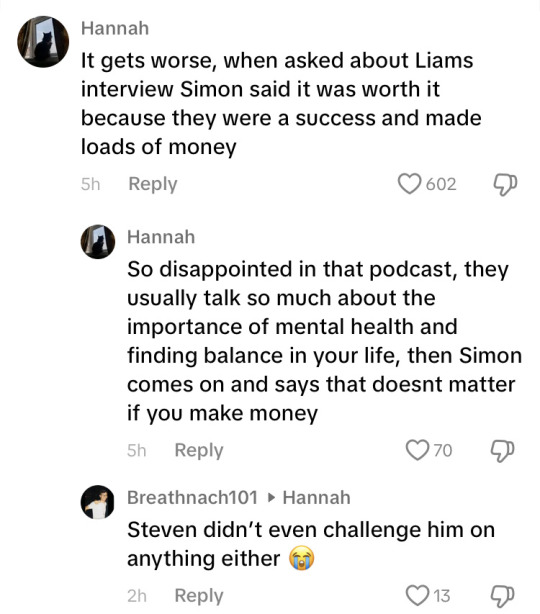
10 June 2024.
Note, Steven Bartlett was (too) kind with Simon and premised the question as Liam having "struggles" and the struggles that come with fame and change. No mention was made about Liam's problems with addiction.
If you want to watch that part of the Steven and Simon interview, just choose the relevant chapter x
#Steven was not direct enough and he had nothing to lose compared to a reporter or a celeb asking that question#everything is about money and fame with Simon#also this interview talks about the death of his father and the comments are so positive and sympathetic to Simon so this whole promo tour#he is doing now to find a new boyband is making him look more human#I did not watch the whole interview#just the chapters on One Direction#Dan cashio#Steven Bartlett#simon cowell#One Direction#mine
67 notes
·
View notes
Text



favourite bots!
@cherriesnkisses
you meet his family - 2012
nonsense outro - 2013
teen dad - 2013
you’re simon cowell’s daughter - 2013
fake boyfriend on new years - 2013
“taste” ft kendall - 2013
you’re 1d’s hairstylist - 2014
you’re dating ashton, but harry likes you - 2014
you’ve never seen him drunk - 2015
he pretends to be your boyfriend - 2015
him + your daughter cook dinner - 2015
colouring his tattoos - 2016
he refuses to break up - 2016
lunch with anne - 2022
popular x shy (secretive edition) - au
he can’t accept a breakup - mafia
in sickness and in health - mafia
frat party - uni
he needs a tutor - uni
he lurves your curves - uni
@jlovescherry
“miss possessive”, by tate mcrae - 2013
he comes to your beach house - 2013
another leaked photo - 2013
a girl at the hotel pool - 2013
he calms you down - 2013
his tattoo artist for the butterfly tattoo - 2013
your toxic relationship is sweet tonight - 2013
he’s wearing your sweater - 2016
knight x princess - au
member of duplicity - mafia
he’s stealing a diamond (duplicity) - mafia
he picks you up on his bike - uni
“something, somehow, someday” - uni
@starryh4ze
teen parents - 2012
interviewing him for “this is us” - 2013
the aquarium with your daughter - 2013
vlogger girlfriend - 2013
your daughter calls him ‘daddy’ - 2016
clingy drunk - 2017
he’s a bartender - au
he pretends to be your boyfriend - uni
summer vacation - uni
@flickerava
he’s on tour - 2013
soft spot - 2013
is it casual now? - 2013
stops an interview for you - 2013
going public - 2015
jealousy - 2018
chicken shop date - 2023
save a seat - uni
he brings you tea (enemies to lovers) - uni
@finelinemia
best friends since childhood - 2012
opposite (sabrina carpenter inspired) - 2013
brother’s bestfriend - 2013
party in mallorca - 2013
i can fix him, no really i can - 2015
behind the album - 2016
he tries to intimidate your date - 2019
you kiss infront of your children - 2025
boyfriends bestfriend - uni
#harry styles#character ai#one direction#character ai creator#c.ai#character ai bot#character.ai creator#character masterlist
26 notes
·
View notes
Text
i will never understand why a 31/32 year old woman would date a 17 year old boy. yes ik it was a stunt however take the stunt out of it for a second. caroline flack was like 14-15 years older than harry. ik the legal age in england is 17 but still. it’s absolutely disgusting and predatory. the fact she even played into this idea nauseates me. simon cowell is a literal fucking demon. pushing the womanizer cougar lover narrative on harry when he was 16-17 years old is INSANE!! no one protected harry from the predators in this industry. no one stepped in and protected him whatsoever. harry was sexually harassed by interviewers and fans for years, especially when he was in one direction. i hope every single person who preyed on and harmed him never have a peaceful day in their lives. the amount of damage they caused this sweet angel is absolutely gut wrenching. they stole his innocence from him and i’ll never forgive this industry for that. and caroline flack had no backbone and never cared about harry. shame on them.
#harry was 17 years old#caroline was 31/32#caroline flack was so weird omfg#fk simon cowell#one direction#closeting#stunt#harry styles
48 notes
·
View notes
Text
Jupiter Darakaraka Observations
*mean-queens --> queenie-coven*

Jupiter Darakaraka natives tend to marry people who fit the themes associated with the planet Jupiter. Their partners tend to have religious upbringings, be of a different race/ethnicity/nationality and just generally have a different upbringing than the native themself. Jupiter Darakaraka natives have spouses that fit certain archetypes such as father, pastor, philanthropist, bodyguard, etc.
Sometimes this manifests in a literal way. For example, Jupiter Darakaraka native Grace Jones married her actual bodyguard Atila Altuanbay. Atila was a Turkish-born Belgian-raised Muslim man who Grace, a Jamaican woman from a Pentecostal family, was attracted to due to his tall, muscular appearance. In 1996, 48 year old Jamaican- born American raised Grace married 21 year old Atila in Rio De Janeiro in a ceremony officiated by a Presbyterian minister. Grace mentions in her biography that Atila took a very active role as a step-father in the life of her son from a previous relationship. The two ended up separating in 2004 after an especially bad argument between the pair where, according to Grace, Atila threatened her with a knife over her interactions with men. After their split Atila lived a quiet life back in Belgium where dedicated his life to social work aimed at improving the lives of underprivileged people in Belgium.

One thing I have noticed is that despite what many other astrologers have written, Jupiter Darakaraka natives don’t seem to date people older than them. In fact, they seem to date people significantly younger than them. Other than Grace Jones, notable celebrities such as Al Pacino, Shawn Carter and Kevin Costner also follow this pattern.
Alfredo “Al” Pacino has 4 children with 3 different women. His youngest child was born in 2023 to his former girlfriend film producer Noor Alfalfa who has Kuwaiti ancestry and is 53 years younger than him. His first child is currently 35 and is shared with acting coach Jan Tarrant who reportedly was born in the 1950s making her 10 to 20 years his junior.
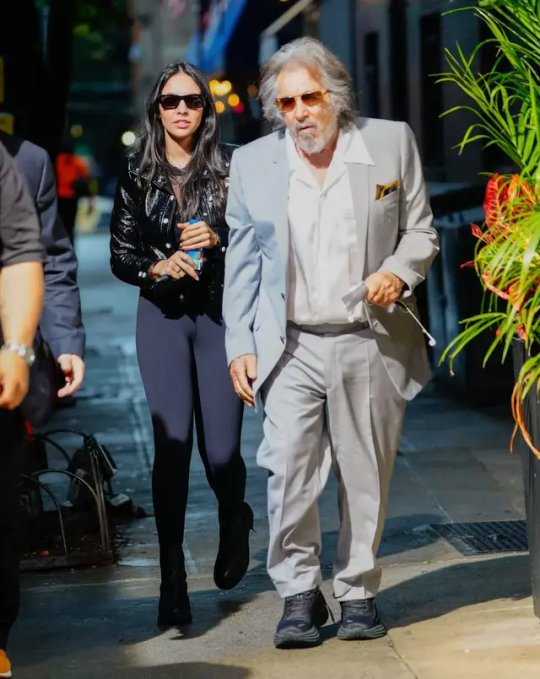
Shawn Carter, more prominently known as Jay-Z, is married to Beyoncé Knowles-Carter who is 11 years his junior. Beyoncé, who on her most recent album has a song called Bodyguard where she likens herself to a lifeguard, Kevlar (a heat-resistant fabric most commonly used in body armor and, specifically, bulletproof vests) and obviously a bodyguard when it comes to the defense of Jay-Z. There is even an interview where 50 Cent mentions having a conversation with Jay-Z in Las Vegas and Beyoncé popping up out of nowhere to confront him about the rap beef he had with Jay-Z at the time.

Another example is Jupiter Darakaraka native Kevin Costner. He co-starred in the romance thriller ironically titled The Bodyguard with Whitney Houston. He was married twice; His first wife Cindy Costner is a year younger than him and his second wife Christine Baumgartner is 19 years younger than him.
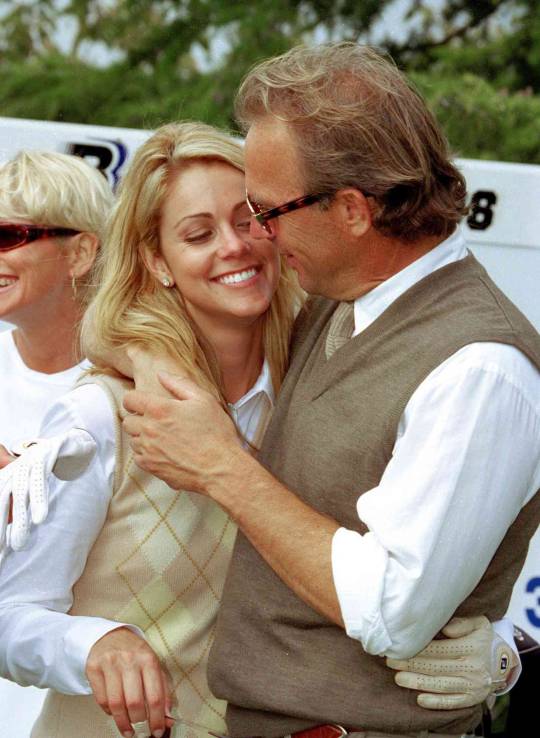
She looks young enough to be his daughter, yuck.
In general, Jupiter darakaraka natives pursue people who are different from them in age, religion, status, size, race, ethnicity, nationality, etc.
Example 1: Barbadian Rihanna has a Jupiter Darakaraka and as of 2020 she has been in a relationship with Rakim Mayers, aka A$AP Rocky, from Manhattan, New York.

Example 2: British-American singer Sinitta is a possible Jupiter Darakaraka native and has dated David Essex, Simon Cowell, Brad Pitt. She was previously married to Andy Willner, the founder of Soma Yoga. All of her confirmed previous partners have been white men while Sinatra herself is a black woman.
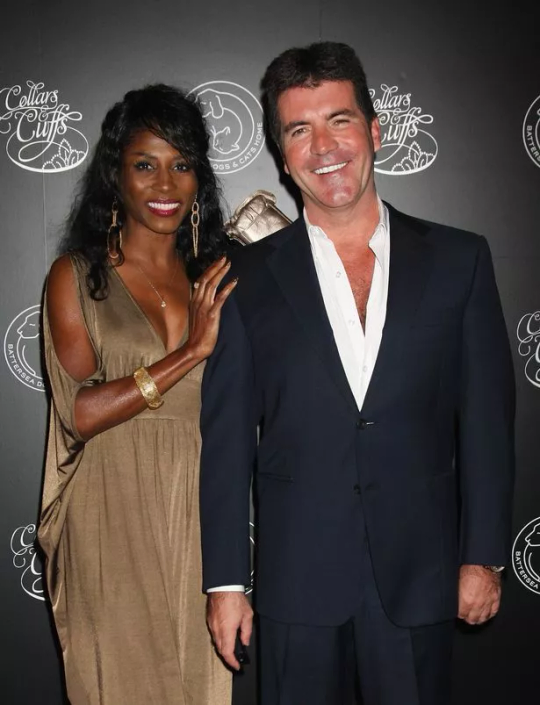
Example 3: Jay-Z is married to Beyoncé who identifies as half African-American because of her father and half Louisiana creole because of her mother. Beyoncé grew up in a two-parent household in the suburbs of Houston, Texas while Jay-Z grew up in the Marcy Projects of Brooklyn, New York in a single-parent household.

One thing I have noticed about Jupiter Darakaraka natives themselves is that they tend to have issues with being in serious relationships particularly when it comes to marriage and monogamy.
Al Pacino, has 4 kids by 3 different women but has never been married simply because he does not want to.

Rihanna has 2 kids with A$AP Rocky and has said that she wants more, however she has only married A$AP Rocky in a music video. In real life legally they are not married.

A major problem with the relationships of Jupiter Darakaraka natives comes from outside of the relationship. Possibly relating to Jupiter’s expansive nature it is actually outsiders that bring problems into the relationships of these natives. The significant others of Jupiter darakaraka natives may feel disrespected through the natives' interactions with other people. Either the Jupiter darakaraka natives are being too friendly with their preferred sex or they end up publicly embarrassing their partner in some way.
Grace Jones has mentioned in her memoir that the cause of her conflicts with her spouse Atila Altuanbay came from her interactions with other men which Atila felt were inappropriate.
Sinitta has a song called Toyboy where she refers to her lover as a toyboy (and a gigolo which goes to the propensity towards age gap relationships).
Kevin Costner has spent years mentioning Whitney Houston in tv interviews and instagram posts. He gave a teary eyed 17 minute speech at her funeral. He is quoted to have said “[Whitney] was my one true love,” after Whitney’s untimely death in 2012. At this time Kevin was 8 years into his marriage to his second wife Christine. I can only imagine that she was a little bit embarrassed about that.

Jay-Z’s situation is pretty much public knowledge at this point so I don’t feel the need to bring it up.

In sum, I feel that Jupiter Darakaraka natives are most likely to have partners completely different from them physically, culturally or in age but Jupiter Darakaraka natives also struggle to manage and maintain their relationships due to their unhealthy desire for complete independence and freedom whilst their partner is not given those same privileges.
Copyright © 2025 by queenie-coven on Tumblr
#jupiter#jupiter darakaraka#darakaraka#sidereal astrology#vedic astrology#vedic astrology observations#astrology observations
28 notes
·
View notes
Text
one direction ask game
what year did you join the fandom
favourite era of any of the members
favourite album
the best album cover
favourite song
favourite memory of one direction
best solo moment of any one direction song
favourite friendship/s
song you have cried to
best style
best show
song you wish you could inject into your veins
song you wish someone would add to their current setlist
song you first fell in love with
underrated song
best 3 song run from any album
who would you call if you needed a tyre changed?
favourite inside joke
favourite tattoo of any member
tattoo roulette, carpool karaoke or dodgeball
favourite cover
least favourite song
if you had the chance to interview any one of them, whats one question you'd ask?
favourite dance move
favourite music video
favourite fan project
zouis?
favourite unreleased song
simon cowell? syco?
best video diary
do you own any merch?
if you could meet one member, who would it be?
best 1D scandal
favourite video diary moment
best x factor performance
best lyric from any song
favourite lyric change
a moment you wish you were there for
who would you call for life advice
best red carpet look
36 notes
·
View notes